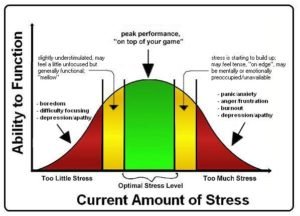Reasons why leaders fail
Amidst all the havoc of aiming to unravel what makes one a better leader, or the traits of a good leader, people tend to overlook leadership failures and the reasons why it could occur. Leaders are quick to recognize their right moves, while being oblivious to the things causing them to fail. It sometimes becomes essential to know what not to do as a leader. The phrase ‘absolute power corrupts absolutely’, seems to play a significant role in understanding why certain leaders fail. It is easy to get caught up in the act of leadership, as one not only gains confidence and control, but also absolute power. The reasons for leadership failure can be associated with the ability of each individual to successfully inspire and guide the team. Hewertson, the author of “Lead Like It Matters…Because It Does”, named five major reasons that make leaders unsuccessful, 3 of them are amentioned below:
Overconfidence or under confidence
Most workers envision themselves in a leadership position and have the confidence required to find an answer to an ongoing problem. The real act of decision-making however, can be a little distorted from their daydream. The overconfident leader falsely believes in their leadership capacity above what is true, while the under-confident leader believes their capacity is lower than what is true and tend to perform safe and manageable roles. Overconfident leaders tend to make impulsive decisions and under confident leaders tend to be timid and unoriginal; both the leadership styles lead to loss of opportunity to shape decisions and effect change.
Approaching leadership with the wrong expectations
Hewerston said “Rarely do new leaders have a clue about what they are really getting into”. Leaders are often unprepared to face the realities of leading and managing a group. They either do not possess the skills and competencies to lead or do not have the desire to do so. Due to their inability to gauge the problem, they end up ignoring them or react inappropriately.
Failure to listen
Most leaders presume they need to have the answers for all queries. This false notion could lead to their inability to listen and comprehend various situations. Listening is not a strong suit for many leaders and they tend to jump to conclusions, rather than learning and building. It is necessary for leaders to have clarity, vision and understand the purpose of what they are doing.
An essential part of leadership development is to understand the warning signs that indicate potential problems. WeSchool helps leaders to learn the warning signs and ways to combat them in order to reduce the risk of leadership failure. To know more about our executive education programs, please visit our website www.welingkarexedp.com
[/vc_column_text][/vc_column][/vc_row]











